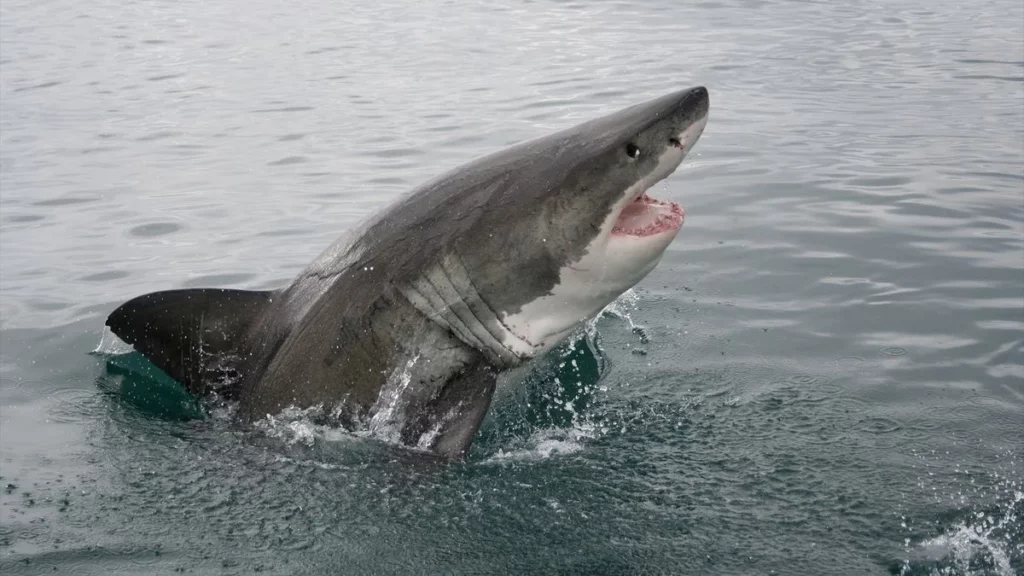Tragic Encounter: Shark Decapitates Stranded Whale in New Zealand
A harrowing incident unfolded on New Zealand’s Māhia Peninsula, where a massive shark, believed to be a great white, decapitated a stranded pygmy sperm whale right before a rescuer’s eyes. The event, which took place in northern Hawke’s Bay, ended the whale’s struggle for survival in a sudden, gruesome manner, highlighting the harsh realities of nature’s food chain.
Immediate Attack by Predatory Shark
The shark, estimated to be over 16 feet long, launched a fatal attack on the pygmy sperm whale, instantly killing it by biting off its head. The whale, which measured around 10 feet, had been stranded along with its calf. Witnesses described the water turning red as the shark returned shortly after to consume the remainder of the whale’s body, leaving nothing behind.
Increased Shark Activity and Marine Mammal Strandings
This tragic incident occurs amid warnings from the Department of Conservation (DOC) about heightened shark activity in the area, following the euthanization of approximately 45 false killer whales and bottlenose dolphins that had stranded earlier. New Zealand’s coasts are notorious for marine mammal strandings, with various factors contributing to these events.
Conservation and Predatory Behaviors
While the loss of the stranded whale is lamentable, experts remind us that sharks are opportunistic predators, playing a crucial role in marine ecosystems. This incident serves as a stark reminder of the predatory laws governing wildlife and the importance of respecting these natural processes, even in their most brutal forms.






